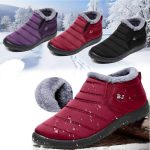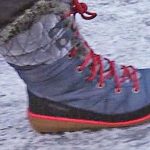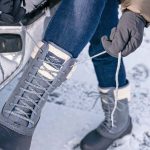Do Rain Boots Work In The Snow? Discover The Ultimate Winter Footwear Solution Now!
Do Rain Boots Work in the Snow?
Introduction
Hello, Boots Enthusiast! Are you ready to tackle the snowy terrain without sacrificing style and comfort? In this article, we will explore the question: Do rain boots work in the snow? Many people wonder if their trusty rain boots can handle the challenges of snowy conditions. We will delve into the advantages and disadvantages, as well as provide you with important information to help you make an informed decision. So, let’s get started!
2 Picture Gallery: Do Rain Boots Work In The Snow? Discover The Ultimate Winter Footwear Solution Now!
What Are Rain Boots?
Rain boots, also known as wellies or galoshes, are footwear designed to keep your feet dry in wet conditions. They are typically made of waterproof materials such as rubber or PVC. The tall shaft of rain boots provides protection against splashes and puddles, making them a popular choice for rainy days.
Who Can Benefit from Rain Boots in the Snow?
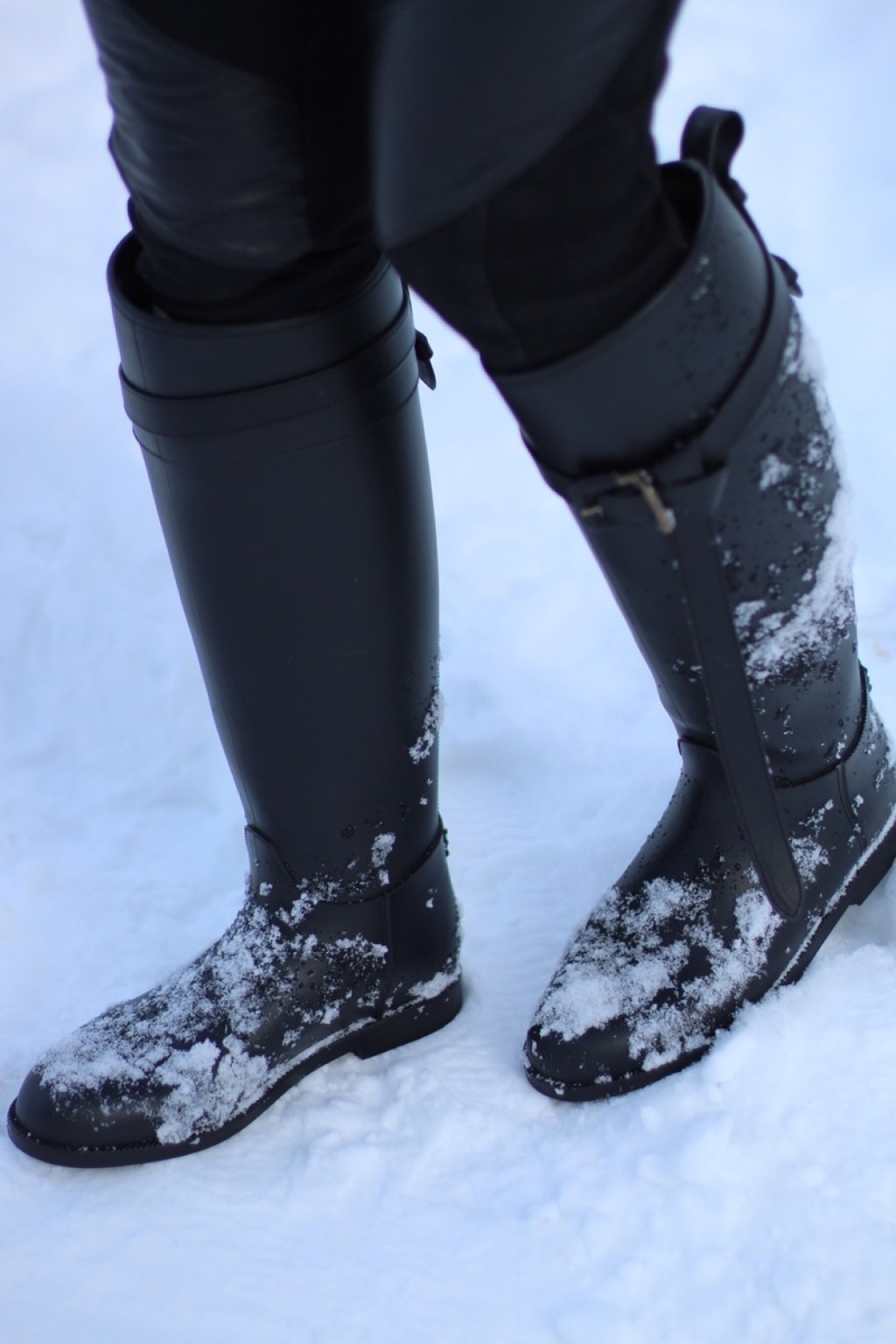
Image Source: busbeestyle.com
Rain boots can be a practical option for individuals living in regions with occasional snowfall. If you experience light or slushy snow, rain boots can offer sufficient protection and keep your feet dry. They are particularly useful for city dwellers who need to navigate wet sidewalks and puddles during winter.
When to Wear Rain Boots in the Snow?
Rain boots are suitable for snowy conditions when the snow is wet or slushy. They may not be the best choice for heavy snowfall or extremely cold temperatures, as they lack insulation. However, if you’re planning a short walk or running errands in wet snow, rain boots can provide the necessary waterproofing.
Where Can Rain Boots Be Worn in the Snow?
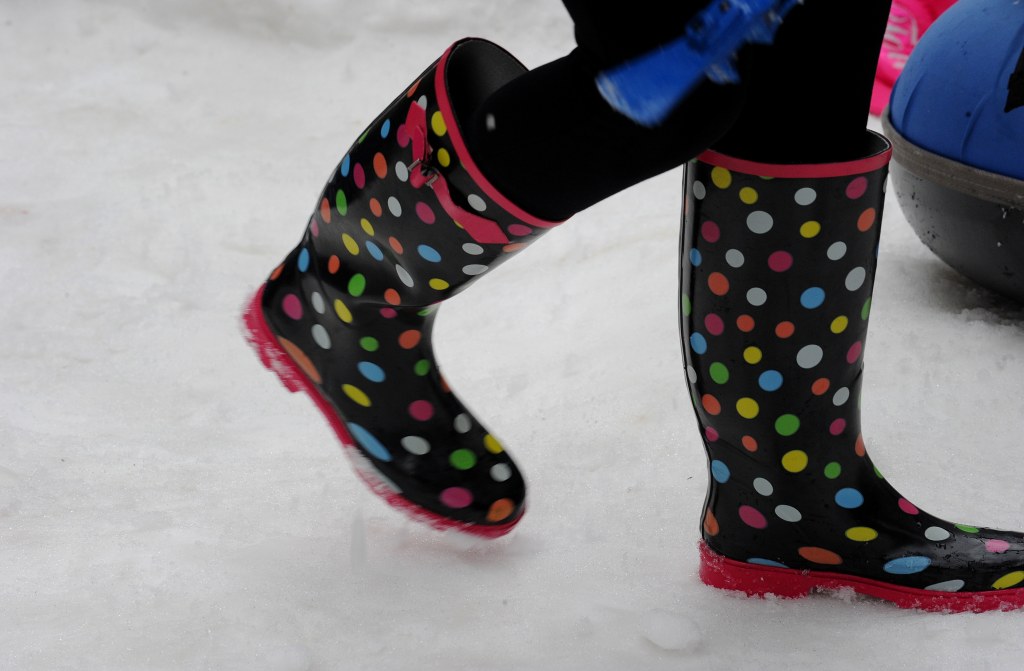
Image Source: imgix.net
Rain boots are versatile and can be worn in various snowy environments. They are ideal for urban settings, where the primary concern is avoiding wetness from slush and melting snow. They are also suitable for light outdoor activities such as walking the dog or running quick errands.
Why Choose Rain Boots for Snowy Conditions?
The main advantage of rain boots in snowy conditions is their waterproof nature. They provide a barrier between your feet and the wet snow, keeping you dry and comfortable. Additionally, rain boots are easy to clean and maintain, making them a practical choice for winter footwear.
How to Choose the Right Rain Boots for Snow?
When selecting rain boots for snowy conditions, consider the following factors:
1. Insulation: Look for rain boots with added insulation to keep your feet warm in colder temperatures.
2. Traction: Opt for boots with a non-slip sole to prevent slipping on icy or slippery surfaces.
3. Height: Choose rain boots with a taller shaft to ensure better protection against snow and slush.
4. Material: Check the material of the boots to ensure they are suitable for cold and wet conditions.
5. Fit: Make sure the boots fit properly and provide enough room for thicker socks during winter.
Advantages and Disadvantages of Rain Boots in the Snow
Advantages:
1. Waterproof Protection: Rain boots keep your feet dry in wet and slushy snow.
2. Easy to Clean: Rain boots can be easily wiped clean after use in snowy conditions.
3. Versatility: They can be worn for casual activities or in urban environments.
4. Wide Range of Styles: Rain boots come in various designs, allowing you to showcase your personal style.
Disadvantages:
1. Lack of Insulation: Rain boots may not provide sufficient warmth in extremely cold temperatures.
2. Limited Use in Heavy Snow: They are not ideal for heavy snowfall or deep snow.
3. Limited Traction: Some rain boots may not offer adequate traction on slippery surfaces.
Frequently Asked Questions
1. Can rain boots be worn in deep snow?
Rain boots are not recommended for deep snow as they lack insulation and traction needed for such conditions. It is best to opt for snow boots that are specifically designed for deep snow.
2. Can rain boots keep my feet warm in the snow?
Rain boots without added insulation may not provide sufficient warmth in cold winter conditions. Look for rain boots with insulation or consider wearing thicker socks for added warmth.
3. Are rain boots suitable for hiking in the snow?
Rain boots are not designed for hiking in snowy conditions. They lack the necessary ankle support and traction required for outdoor activities on uneven terrain. It is advisable to wear proper hiking boots for such activities.
4. How do I clean my rain boots after walking in the snow?
To clean your rain boots after walking in the snow, simply rinse them with water and wipe off any dirt or salt residue with a damp cloth. Allow them to air dry before storing.
5. Can rain boots be worn in icy conditions?
While rain boots provide waterproof protection, they may not offer sufficient traction on icy surfaces. It is recommended to wear boots with specialized non-slip soles for icy conditions.
Conclusion
In conclusion, rain boots can work in snowy conditions, but their suitability depends on factors such as the type of snow, temperature, and intended use. They are best suited for wet or slushy snow and urban environments. However, for heavy snow or extremely cold temperatures, dedicated snow boots may be a more appropriate choice. Consider the advantages and disadvantages before making your decision, and always prioritize your comfort and safety.
So, embrace the winter season with confidence, whether you choose rain boots or opt for specialized snow boots. Stay warm, stay dry, and enjoy the beauty of the snow!
Final Remarks
Disclaimer: The information provided in this article is for informational purposes only and should not be considered as professional advice. Please consult with footwear experts or retailers for personalized recommendations based on your specific needs and requirements.
This post topic: Boots
